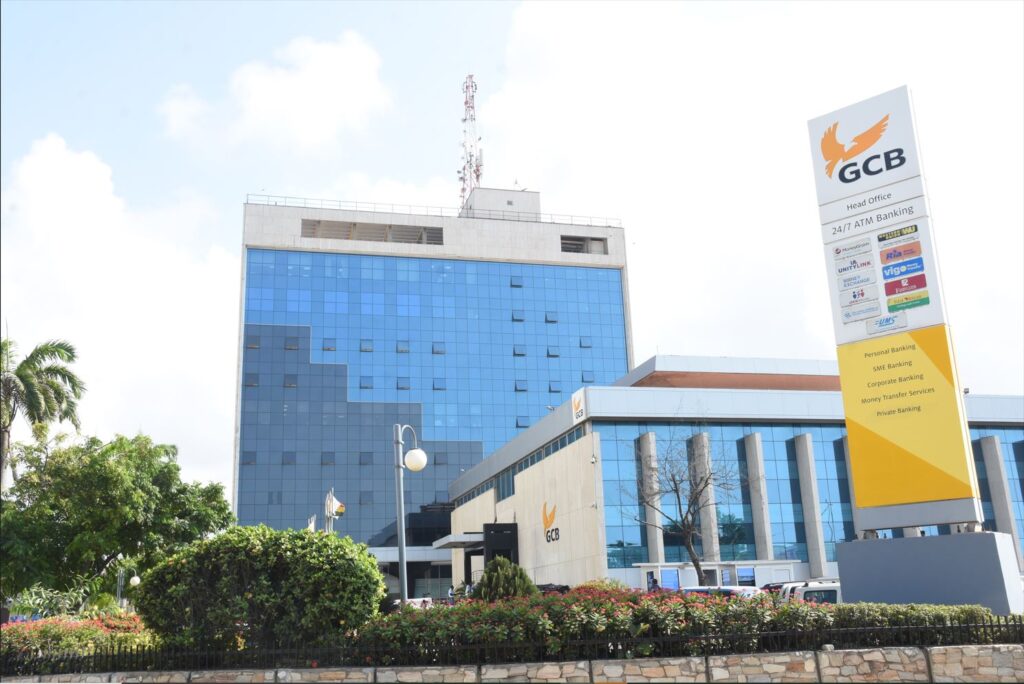– Damning Questions Emerge Over Secrecy and Mismanagement
Once hailed as an unwavering pillar of Ghana’s financial landscape, GCB Bank PLC now finds itself engulfed in a swirling vortex of controversy, its very integrity questioned as it defiantly slams the door on public scrutiny.
A shocking refusal to comply with the Right to Information Act (Act 989) has not only ignited a firestorm but laid bare a disconcerting truth: Is GCB Bank truly a bastion of financial strength, or merely a deceptive façade, a house of cards built on the shifting sands of secrecy and potential rot?
The bank’s leadership, clutching at the thin veil of “private financial institution” status, attempts to sidestep the full force of the RTI Act.
But this legalistic smokescreen rings hollow, echoing with the growing disquiet of shareholders, employees, and the Ghanaian public alike.
GCB Bank’s colossal footprint on the nation’s economy and the lives it touches demands more than a technicality; it demands transparency.
In an age where information is power, GCB’s obdurate stance is not just a disregard for good governance – it’s a brazen affront to the very people it purports to serve.
At the heart of this unfolding saga lies a moral bankruptcy that eclipses any legalistic gymnastics.
Stakeholders are clamoring for answers: How are their vast resources being managed? What clandestine decisions are being made? And crucially, is the bank’s leadership truly acting in the best interests of its constituents, or merely feathering its own nest?
By cloaking its operations in a suffocating shroud of secrecy, GCB Bank is not just alienating its stakeholders; it is actively cultivating a breeding ground for suspicion, distrust, and a catastrophic erosion of public confidence.
Whispers of mismanagement and shadowy decision-making have long haunted GCB Bank. Now, these murmurs are escalating into outright accusations.
Shareholders and tenacious investigative journalists are pointing fingers at a litany of troubling issues, none more glaring than the opaque financial management of the bank’s grand 70th-anniversary celebrations.
Serious questions persist: How were funds allocated? Were there irregularities? Was public money shamelessly squandered?
Further fueling the fire are allegations surrounding key appointments – a process reportedly riddled with favoritism, where qualified candidates were allegedly sidelined for those with “personal connections.”
And what of the sudden “restoration” of public relations and corporate communications? Why now? What skeletons are they attempting to bury, or what narrative are they desperately trying to control?
Even property acquisitions are under a magnifying glass, with concerns of unethical conduct and glaring conflicts of interest.
These are not trivial matters; they are the bedrock upon which GCB Bank’s reputation and operational efficacy either stands or crumbles.
The continued stonewalling on these critical issues only serves to pour fuel on the flames of speculation and public mistrust.
The recent response from the bank’s legal counsel is not just troubling; it’s a shocking testament to a management utterly disconnected from its stakeholders, brazenly prioritizing legal loopholes over ethical imperatives.
This myopic approach is a dangerous gamble, a self-destructive path that threatens to unravel the very fabric of the institution.
Trust, once shattered, is a Herculean task to rebuild. A damaged reputation could send ripple effects through Ghana’s entire financial sector, scaring off investors, driving away customers, and ultimately destabilizing the nation’s economic bedrock.
The time for meek acceptance is over. Shareholders, employees, and every Ghanaian with a stake in the nation’s financial stability must rise up.
Passivity is no longer an option. Stakeholders must demand accountability and transparency through every available avenue.
Engage the bank’s management – not with polite suggestions, but with unwavering demands. Shareholders must storm annual general meetings, brandishing tough questions and refusing to back down until clear, concise answers are delivered.
An independent review of the bank’s operations is not a request; it is an absolute necessity. And if GCB Bank continues its defiant stance, legal action must be pursued with unrelenting vigor to enforce compliance with the Right to Information Act.
The power of public opinion cannot be underestimated. The media, civil society organizations, and concerned citizens must coalesce, raising awareness and applying relentless pressure on GCB Bank to abandon its clandestine ways.
GCB Bank stands at a precipice. It can choose the path of transparency and accountability, painstakingly rebuilding trust and solidifying its position as a truly responsible financial institution.
Or, it can stubbornly cling to its shroud of secrecy and denial, risking not just its reputation and financial stability, but its very existence.
The market demands accountability. Shareholders must not hesitate. A united front, unequivocally championing transparency and ethical governance, is the only catalyst for the profound change that is desperately needed.
The future of GCB Bank, and indeed the very stability of Ghana’s financial sector, hangs precariously in the balance.


